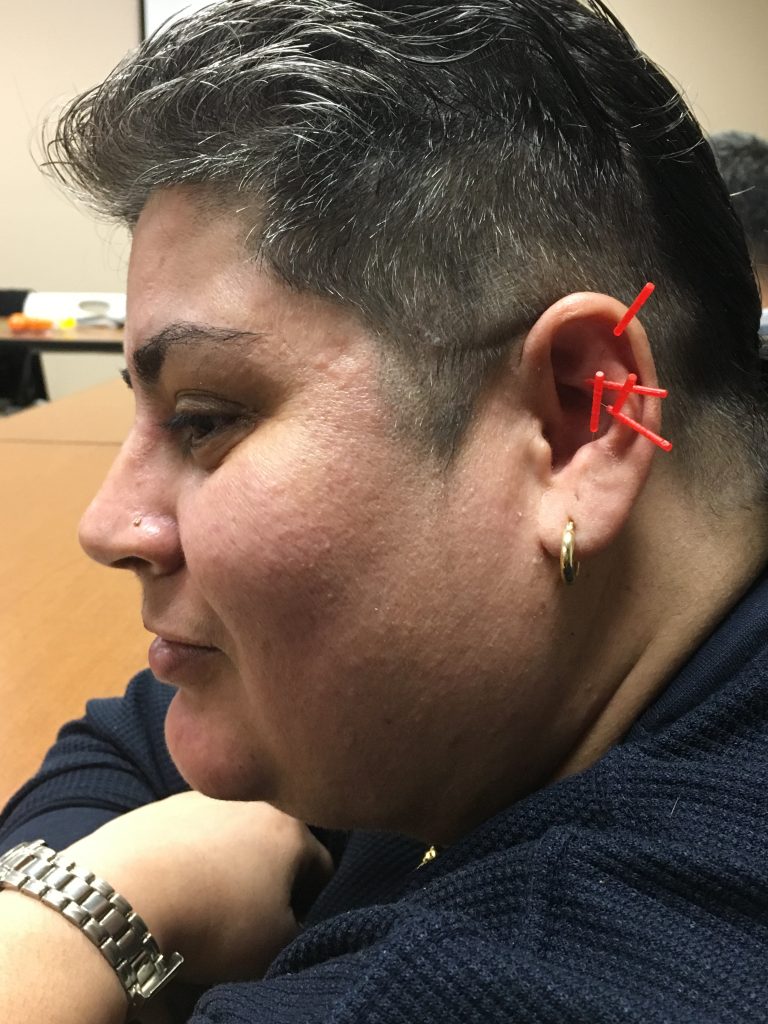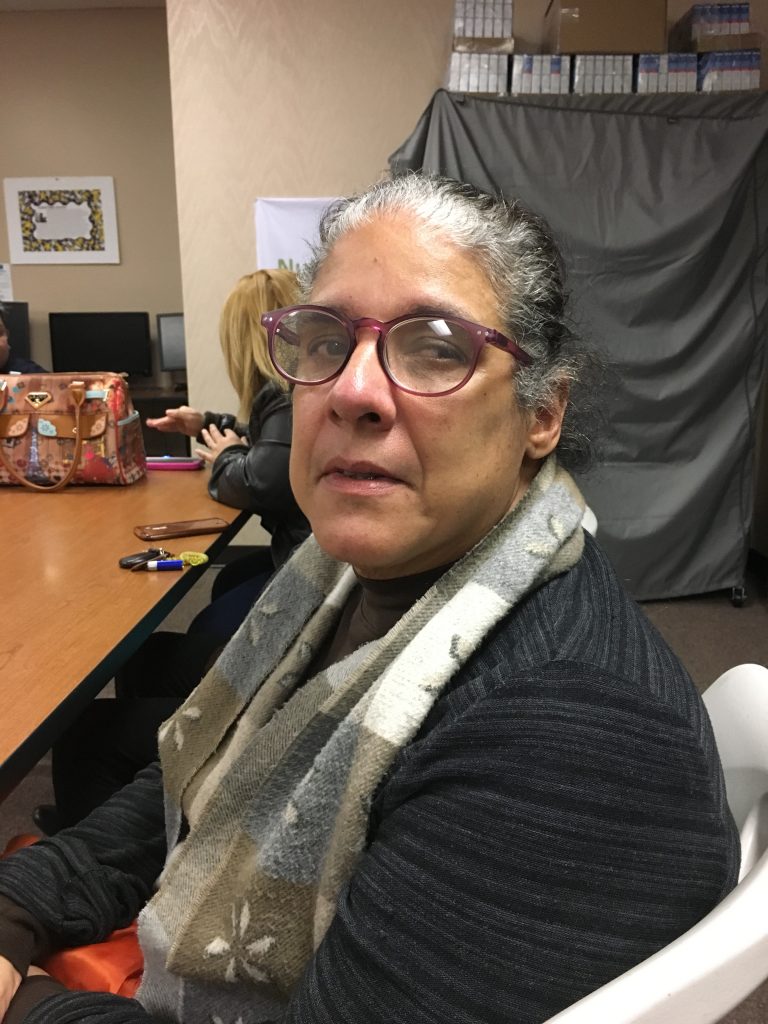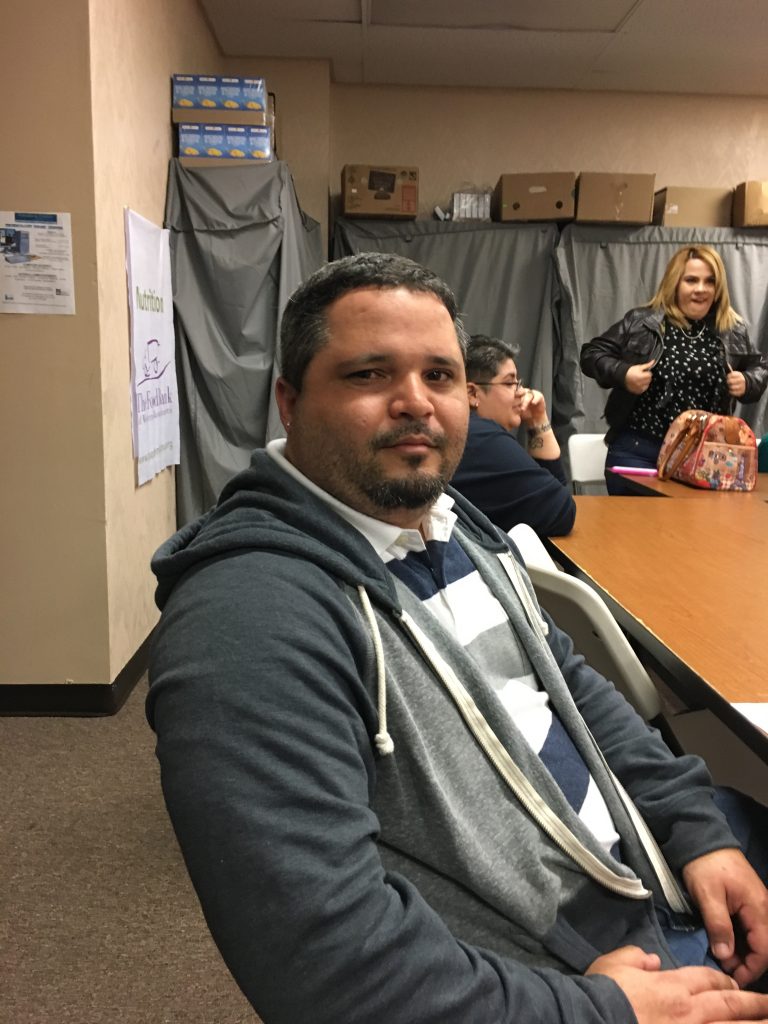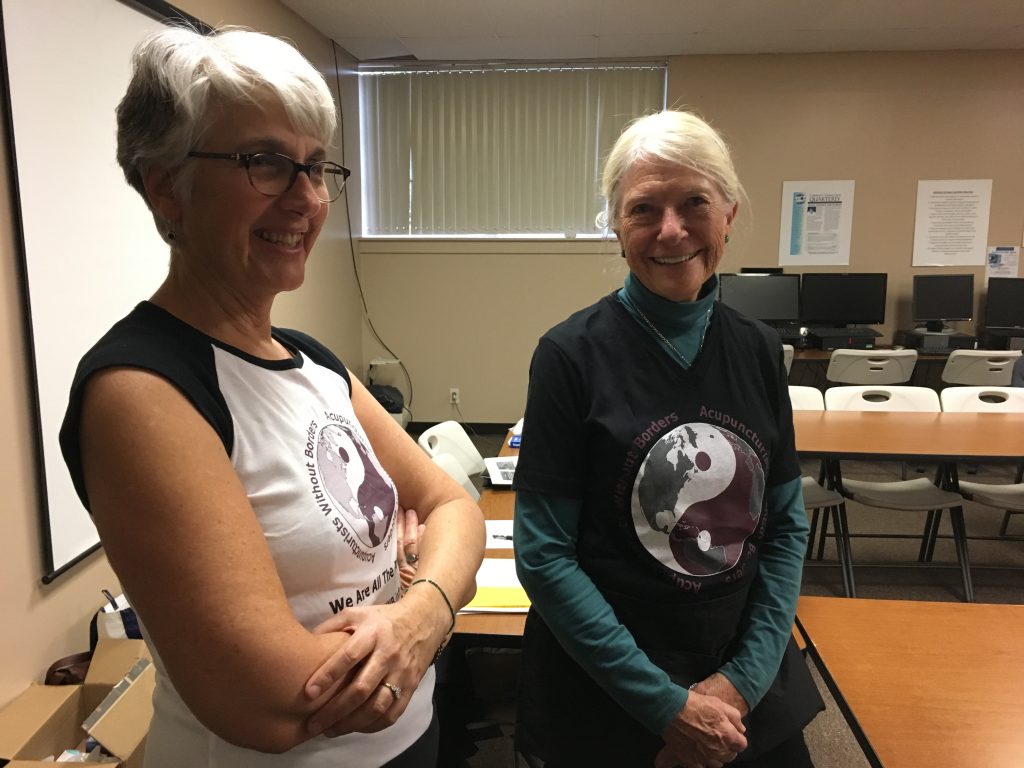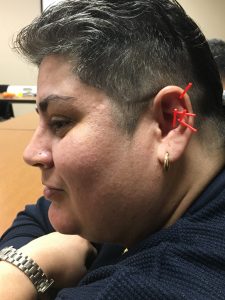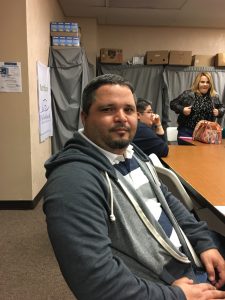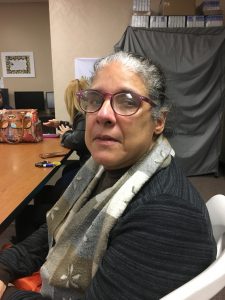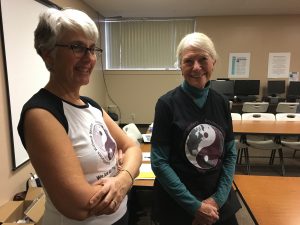The Springfield Family Resource Center of Gandara is located in a modest building at 18 Gaucher Street in Springfield’s Pine Point neighborhood, and upon arrival it’s clear that this social service agency is a community lifeline. Inside, the narrow reception area teems with clients seeking services, and the staff are friendly and efficient. There is order in the chaos, however; case managers busily take information in a room directly to the right while staff at the front desk triage visitors so that they are seen by the appropriate department.
It’s an ambitious operation; Gandara’s overall mission is “to promote the well-being of Hispanics, African Americans, and other culturally diverse populations through innovative culturally competent behavioral health, prevention, and education services.” The agency has been providing care for over 40 years, since 1977, and continues to seek creative ways in which to serve their target population.
With its mission in mind, SFRC has collaborated with a group called Acupuncturists Without Borders (AWB), to host a clinic providing a less traditional form of care. The western Massachusetts Puerto Rican hurricane relief clinic will be open on the first Mondays and third Tuesdays of each month. The target audience is Hampden County’s Puerto Rican evacuee population.
Acupuncturists Without Borders was founded by Diana Fried in 2005 immediately after Hurricanes Rita and Katrina. From October 2005 to November 2006, AWB provided free community acupuncture treatments to 8,000 people in Louisiana, including evacuees, residents, first responders, emergency personnel, volunteers and other care providers. Here in the Pioneer Valley, acupuncturists have joined forces to not only travel with AWB but to provide services for those traumatized locally.
Verena Smith, an Amherst based acupuncturist, founder of the Amherst Gift of Health family clinic and an AWB member, says, “people who were directly hit by hurricanes – and their families and friends from Western Mass – surely are experiencing serious acute traumatic stress. Folks may be having flashbacks, panic, insomnia, suicidal ideation, or any number of symptoms that can be relieved with simple treatments.“
Smith says the non-invasive aspect of the treatments is key. “It’s a group treatment,” she says. “People feel safer in a group setting.”
In SFRC small waiting room, as children played with a modest assortment of toys, the adults’ gazes shifted from their hands to the small wall-mounted television. Most were evacuees from Puerto Rico, victims of Hurricane Maria, the mammoth storm that destroyed Dominica and Puerto Rico in September. They were not interested in reading the bounty of pamphlets that filled the bookshelves; they seemed apprehensive, disquieted. They waited patiently for the acupuncture treatment which promised to ease at least a bit of their stress.
Octavio Rodriguez appeared at once calm and tense. A native of Humacao, Rodriguez evacuated Puerto Rico after Maria destroyed the house in which he lived. “I didn’t lose everything, but the house … was damaged.”
Because Rodriguez did not own the house, he was not eligible for FEMA assistance. He came to Springfield because his daughter lives here, and he plans on staying. When asked what he expected from the acupuncture treatment, he replied, “it’s better for the sleeping and the stress and everything. I think it will be good. It’s my first time.”
Maria was the 13th named storm and the second Category 5 hurricane in the deadly 2017 Atlantic hurricane season. With projected maximum sustained winds of 155 miles per hour, mandatory evacuation orders sent many islanders to the mainland. Evacuees fled to Florida and New York; many also fled to Massachusetts. Not only were their lives uprooted, but many professionals are having difficulty finding employment due to state license laws.
Death toll estimates in Puerto Rico range from 500 to 1,000, and devastation to the island’s already failing infrastructure, left large swaths uninhabitable.
Gandara Executive Director Henry Julio East-Trou recently returned from Puerto Rico.
“In Old San Juan the ships are still coming and it doesn’t look like much is going on,” he said. “But you just take a tour outside and the areas around the city are devastated.”
As of this month, it’s estimated that nearly one million people (or one-third of the population) are still living without electricity.
Evacuee Milagros Morales left because her mother was bedridden and needed electricity for medical equipment. They fled their home in Rio Grande and went to a hospital on the island. From there they went to New York. Milagros is now is Springfield. “I’m praying for some kind of relief from this stress.” She became tearful. “I’m really shot.”
Cindy Stovall, Director of the Family Resource Center at Gandara, says, “over 900 families have arrived in Hampden County since September and SFRC has served over 400 of them.” Stovall cautions that 900 is a low estimate; there are many more from the island who did not go through the Welcome Center but instead had relatives with whom they could live. Still, she says, “after March 20 there’s no more placements in hotels. People can elect to go back to Puerto Rico, which many are doing, but for the majority there’s nothing to go back to.” The question at SFRC is always “how can we help?”
Stovall says, East-Trou and Amherst acupuncturist Nancy Edwards combined to bring AWB to the SFRC, and Edwards of Greenfield and fellow acupuncturist Dedie King of Amherst were the providers on hand at the clinic. With a combined 70 years of experience, their confidence in healing through acupuncture seemed to comfort clients, and two translators were on hand to help answer final questions before the treatments began. The two acupuncturists explained the process as clients sat around a table in a conference room. Edwards and King then took a brief individual assessment of the participants before placing the fine needles in their ears. Edwards noted afterward, “Of the five people I treated, four said they’d received acupuncture before.”
Edwards and King proceeded to use 10 needles per person; Verena Smith explained, “there are 5 points on the ear acupuncturist use to deliver healing to a patient. The liver (which houses anger, depression), the heart (the spirit and the seat of joy), the lungs (which hold grief), the sympathetic nervous system (stimulation of this system makes you feel calmer), and the kidney (the seat of anxiety).” Once all of those present were served, Edwards began to play soothing music and the group was encouraged to sit quietly and/or meditate. They described acupuncture as a “harmonizing treatment.”
Treatments tend to last 40 minutes; afterward, Edwards and King went around the table one last time to remove the needles from their clients’ ears. Once removed, people seemed a bit more jovial, perhaps the result of a positive shared experience or perhaps a result of the treatment. Regardless, the general mood seemed lighter; smiles spread across faces for the first time that evening.
The Springfield Family Resource Center received a $15,000 grant from the Boston Foundation, but Stovall notes, “AWB isn’t charging anything to do this. We just provide the space and they come here to help our families.” The western Massachusetts Puerto Rican hurricane relief clinic is ongoing “until there’s no more need,” Stovall says.
Gina Beavers can be reached at gbeavers@valleyadvocate.com.

